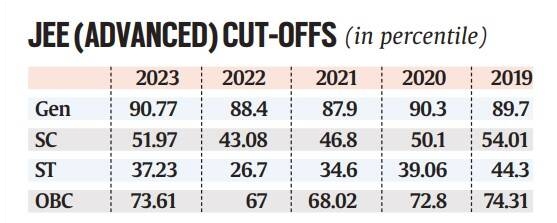Table of Contents
Introduction
The concept of equality is often hailed as a fundamental concept in many societies, advocating for fairness and equal treatment for all individuals.
It embodies the belief that all of the people should have the same opportunities, access to resources, irrespective of their gender, race, ethnicity or status.
However, when one delves deeper into the fundamental concept of equality and tries to establish it in different parts of society, a certain irony or a paradox emerges.
Gender Equality or Feminism
The irony of striving for equality, can lead to neglect and marginalisation of certain groups, sowing the seed for an another form of inequality.
In the case of the establishment of gender equality and the rise of feminist movement, the purpose was to originally address the historical imbalances and promote equal treatment for both the genders, which has now turned to satisfy the ego of women to establish themselves as better than men in different areas of life, especially, in the West. This movement has still held its purpose in third-world countries like India, where it continues to empower women to realise and make judicious use of their abilities. The implementation of actions to achieve this goal has ultimately lead to overlooking the experiences and perspectives of one gender, creating an another form of inequality. While historical gender disparities have often kept women at an disadvantage, it is crucial to avoid swinging the pendulum so far in the other direction that, the other gender gets sidelined.
It is rightly said,
Indians ape the West.
Nowadays, there has been an exponential rise in fake domestic violence, rape, sexual assault, mental harassment cases in India. The judgements are usually in the woman’s favour and men are mostly sidelined due to the stereotypes created by the society. Their career, mental health, and societal status takes a turn for the worse due to a fake case. The distrust among the judiciary has been rising exponentially among the youth due to the improper investigation and judgements on fake cases.
This is the impact of one going too far in establishing equality among both of the genders. A change needs to be put forth.
The Great Reservation System of India
The Reservation System of India is one of the most prominent examples of establishment of inequality in pursuit of equality.
Reservation system is based on caste, which aims to uplift marginalized and historically disadvantaged groups. An another irony is that, the caste system was abolished by the Indian Government in 1947, but is still being considered as a criteria for several government practices.
Reservation policy in India was introduced to provide for Scheduled Castes (SC), Scheduled Tribes (ST), and Other Backward Classes (OBC). These groups have historically faced social and economic disadvantages due to the caste system and other forms of discrimination. The reservation system allocates a certain percentage of seats in educational institutions, government jobs, and legislative bodies for individuals belonging to these groups.
While the reservation system was implemented with the intention of rectifying historical injustices and promoting equality, it has led to the emergence of another form of inequality. The reservation system hinders meritocracy by prioritizing caste-based considerations over individual capabilities and qualifications. Ambitious and passionate citizens who fall in the general category, don’t get an equal opportunity to prove their mettle, study in the top universities of the country and enter one of the most prestigious jobs to serve the nation.
Below are the cutoffs for various categories in one of the hardest exams in the world, JEE Advanced, which gives you a seat in the IIT’s, the MIT of India.
 There is a visible gap between a he percentile to get into IIT’s for General students and ST students. As per the above cutoff ranking, a student who scored 91 percentile will get the same branch as a student who scored 38 percentile. If this is meritocracy, then, the nation is doomed.
There is a visible gap between a he percentile to get into IIT’s for General students and ST students. As per the above cutoff ranking, a student who scored 91 percentile will get the same branch as a student who scored 38 percentile. If this is meritocracy, then, the nation is doomed.
Although, I would like to remind that the trajectory of one’s life, either upwards or downwards, after giving the examination can not be wholly blamed on the reservation system. If one is a part of the nation, one will have to enjoy its unique benefits and positives but also bear with its drawbacks. There are various other opportunities which have a possibility to give you a taste of success more than getting into IIT’s or any other prestigious college.
Although one can’t change the system, one can just have an ambition to do so, till the fateful day finally arrives.
Conclusion
Many times the Good we create leads to Evil that will destroy us. The universe is trying to maintain balance, we must aid this by ensuring that Good is not enjoyed excessively. Or else the universe will re-balance itself by creating Evil to counteract Good. That is the purpose of Evil: it balances the Good.
In this sense, it can be perceived as the good was the reservation system. It performed its purpose initially and drastically improved the lives of the marginalised people. But, one should keep in mind that the excess of good is evil. Universe to maintain its balance, has turned the good to evil and our duty is to eradicate it.
Fundamentally, equality is a paradox. In the ceaseless pursuit of equality, we drift further from its essence.
This article may have been controversial and would have been offensive to some of the readers. But, keep in mind that any idea which has the potential to spark a reform is always controversial at the initial stage.